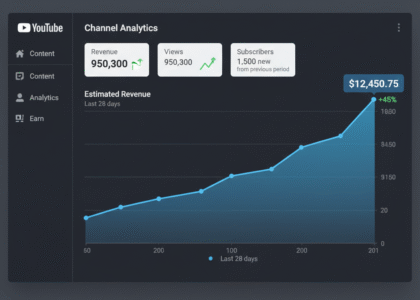Your credit health is a cornerstone of your financial stability. Whether you’re aiming to qualify for a mortgage, secure a personal loan, or simply achieve peace of mind, understanding and utilizing the right financial tools for credit can make a significant difference. This guide will explore effective strategies and tools to help you improve your credit score and overall financial health.
Why Credit Health Matters
Your credit score impacts many aspects of your financial life. It determines loan eligibility, interest rates, and even rental approvals. A strong credit score signals reliability to lenders and opens the door to better financial opportunities. Conversely, poor credit can limit these options, leading to higher borrowing costs and restricted financial flexibility.
Improving your credit health requires strategic action and the right tools. Here’s how you can get started.
1. Leverage Secured Credit Cards


A secured credit card is one of the most accessible financial tools for credit improvement. It works like a regular credit card but requires a refundable security deposit, which typically acts as your credit limit. Responsible use of a secured credit card can help establish or rebuild your credit.
How to Use Secured Cards Effectively:
- Use the card for small, manageable purchases.
- Pay off the full balance each month to avoid interest.
- Ensure the issuer reports your activity to the three major credit bureaus (Experian, Equifax, and TransUnion).
Top options include the Discover it® Secured Credit Card and Capital One Platinum Secured Card, which offer features like cashback rewards and free credit monitoring.
2. Explore Credit-Builder Loans
Credit-builder loans are specifically designed to help individuals with no or poor credit history. These loans work differently from traditional ones: the loan amount is held in a savings account, and you make monthly payments until it’s fully paid off. Once completed, the funds are released to you, and your on-time payments are reported to the credit bureaus.
Where to Find Credit-Builder Loans:
- Local credit unions and community banks
- Online platforms like Self and Credit Strong
3. Consider Rent Reporting Services

If you’re a renter, your monthly payments can contribute to your credit history. Rent reporting services allow tenants to have their on-time payments reported to the credit bureaus, boosting their credit score over time.
Top Rent Reporting Services:
- RentTrack
- CreditMyRent
- PayYourRent
Before signing up, check if your landlord or property manager supports these services, or choose a service that works independently.
4. Monitor Your Credit Regularly by Financial Tools
Staying informed about your credit status is crucial. Credit monitoring tools help track changes in your credit report, alerting you to potential issues such as identity theft or errors.
Best Credit Monitoring Tools:
- Credit Karma (free monitoring and insights)
- Experian CreditWorks
- myFICO (detailed FICO score tracking)
By keeping a close eye on your credit, you can identify areas for improvement and ensure your report remains accurate.
5. Practice Smart Credit Utilization by Financial Tools


Credit utilization—the ratio of your credit card balances to your credit limits—is a key factor in your credit score. Keeping your utilization low demonstrates responsible credit management.
Tips to Improve Credit Utilization:
- Aim to use less than 30% of your available credit limit.
- Pay off balances multiple times a month to keep utilization low.
- Request a credit limit increase if you’re eligible, but avoid overspending.
6. Become an Authorized User by Financial Tools
Joining someone else’s credit card account as an authorized user can give your credit score a significant boost, especially if the account is well-managed. You’ll benefit from the primary cardholder’s positive credit history.
Important Considerations:
- Choose a trusted family member or friend with strong credit habits.
- Ensure the primary cardholder maintains low balances and on-time payments.
7. Automate Payments to Avoid Late Fees
Payment history accounts for 35% of your credit score, making it the most significant factor. Setting up automatic payments for credit cards and loans ensures you never miss a due date, protecting your score from unnecessary damage.
Pro Tip: Even if you automate payments, regularly review your accounts to ensure everything is in order.
8. Dispute Errors on Your Credit Report by Financial Tools


Mistakes on your credit report can harm your score. Regularly review your credit report and dispute any inaccuracies you find. Common errors include incorrect account details, outdated information, and fraudulent accounts.
How to Access Your Report:
- Use AnnualCreditReport.com to get a free copy of your credit report from each bureau once a year.
- Follow the dispute process outlined by the bureau reporting the error.
Building Credit Takes Time
Improving your credit health isn’t an overnight process, but with consistent effort and the right financial tools for credit, you can achieve your goals. Whether you’re starting from scratch or rebuilding after setbacks, these strategies can help you move forward.
Conclusion
Your credit health is a critical part of your financial well-being. By using tools like secured credit cards, credit-builder loans, and rent reporting services, you can steadily improve your credit score and unlock greater financial opportunities.
Discover more tips on achieving financial freedom! Explore GetCashVibe today and take control of your finances.






